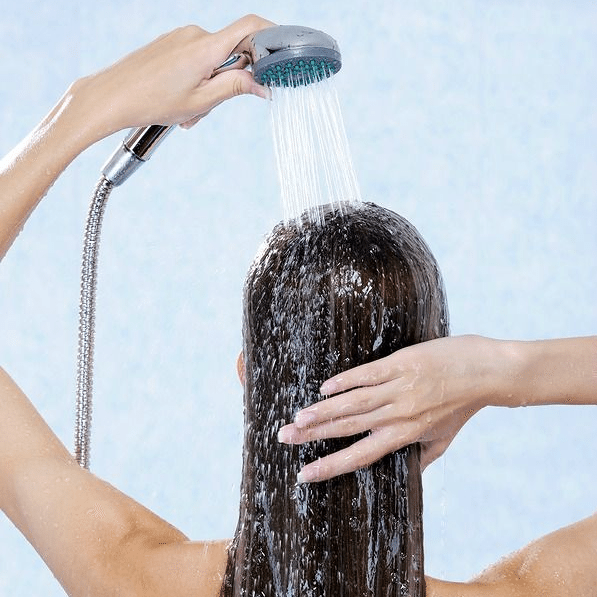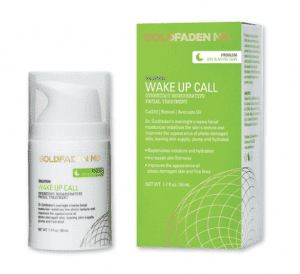Breast cancer awareness month is the perfect time to take a closer look at what you’re putting on your body. We all know how important a healthy diet, exercise and screening is for cancer prevention. But what about your hair care and skin care, they can be causing you more harm than good. Absorption rate on the face and scalp is 5-10 times higher than the rest of the body. In today’s world there are so many healthy clean alternatives to traditional hair and beauty products. It may seem like a daunting task to change all your products at once but it doesn’t have to be. Start one at a time and ease into a healthier beauty regimen. Below are some ingredients to be aware of and stay away from.
 Photo via Cloudy With A Chance of Wine
Photo via Cloudy With A Chance of Wine
PEGs and glycols: Including polyethylene glycol (PEG), butylene glycol, propylene glycol, polyoxyethylene, or anything ending with “eth” or “oxynol”
Lauryl and laureth sulfates: Includes sodium lauryl sulfate, ammonium lauryl sulfate, sodium laureth sulfate, ammonium laureth sulfate
Petrochemicals: Including mineral oil, petrolatum, light liquid paraffin, petroleum distillate, mineral jelly and petroleum jelly
Synthetic chemicals and dyes: A cocktail of potentially hundreds of chemicals
Triethanolamine: Often listed as TEA
Triclosan: A popular antimicrobial agent used in sanitizers and hand soaps
Phthalates: A plasticizer used in lipsticks, nail polishes, fragrances and hair sprays.
1,4 dioxane: A contaminant formed as a byproduct during manufacturing of detergents, foaming agents, emulsifiers and solvents. The FDA does not require it be listed as an ingredient, but it can be found in ingredients listed as PEGs and glycols.
Silicones: Methicone, Phenyl trimethicone, Dimethicone, Cyclomethicone, Dimethiconol, Dimenthiconol copolyol
Now that you know what not to use, what are the alternatives? We have so many favorites to share!
Skincare can be tricky in the hydration department. We want our skin to be hydrated and feel hyrdated. This is usually achieved with the ingredient dimethicone. While dimethicone has been labeled safe by the FDA and remains on the ‘low risk’ list with the Skin Deep Database, there is still reason for concern. Dimethicone is a silicone that gives haircare and skincare products that luxurious slip. The issue is that silicone coats whatever it is applied to. This can cause allergic reactions and dry skin. Because your skin is coated it cannot properly breathe and accept natural oils and humidity. Think of dimethicone products as a barrier over the skin, none of the good ingredients are able to be absorbed. So what to do? Look for skincare products that are free of silicones. Good ingredients to look for that will deliver hydrating results are Vitamin E, avocado oil, coconut oil, or naturally derived hyaluronic acid. Our Wake Up Call is the perfect example!
 For haircare our goto is Rahua which is organic, free of parabens, silicones and sulfates! A rare Amazonian nut produces an oil that give Rahua its magic. “The key to Rahua’s outstanding performance is its molecular structure. Unlike other botanical oils that simply coat strands, the extraordinarily small Rahua oil molecule deeply penetrates the hair’s cortex – bonding and repairing it – while simultaneously smoothing the hair’s cuticle.” Not to mention it smells delicious!
For haircare our goto is Rahua which is organic, free of parabens, silicones and sulfates! A rare Amazonian nut produces an oil that give Rahua its magic. “The key to Rahua’s outstanding performance is its molecular structure. Unlike other botanical oils that simply coat strands, the extraordinarily small Rahua oil molecule deeply penetrates the hair’s cortex – bonding and repairing it – while simultaneously smoothing the hair’s cuticle.” Not to mention it smells delicious!
When trying to live a healthy, clean, cancer-free life every little bit helps. Join us in spreading the word to other women about getting screened, eating organic, exercising, not smoking and getting educated on what goes on your body can be as important as what goes in it!
